Earlier this year, I asked Rusty Shelton about the PR activities that most often resulted in book sales and learned that being interviewed on podcasts is one of the top things you can do to sell more books.
Why? Because podcasts tend to be very targeted, you can reach the exact audience who is the core market for your book—the people who most want and need what you have to offer.
What are Podcasts?

If you know what podcasts are, just skip this brief paragraph. A podcast is a regularly produced “program” by audio or video that people can subscribe to and/or download on places like itunes, Podbean, Stitcher or even Facebook and YouTube.
To get a feel for podcasts, listen and/or watch several, especially those in your field and of course, on writing, so you’ll pick up some good writing and publishing tips in the process.
What Got Me on the Topic of Podcasts?
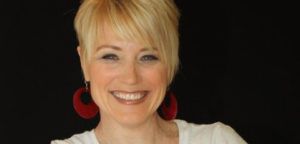
Debby Monk came to a “Writing in the Zone” workshop at All That Matters in Wakefield, Rhode Island years ago and stayed in touch via my newsletters. She reached out a couple of weeks ago to invite me to be a guest on her podcast, along with her co-hosts Shelly Devlin and Mandra Biscornet.
Tuesday morning, I had the joy to be interviewed on The Writer’s Block Podcast and so enjoyed our conversation about writing in the zone, book coaching, how to find the right editor for your work and how to reach your readers and sell more books.
Watch or listen to the podcast and you’ll learn:
- 5 key elements to consistently write from a space of inspiration
- How to clear your mind and open yourself to write
- What to do so you don’t come to the writing burned out
- What to look for in a book coach, writing coach or editor.
- What’s a muse?
- What a good podcast looks and sounds like (these ladies know how to engage their guests and their audience).
What Makes for a Great Podcast Guest
Here’s what Mandra Biscornet says about what makes for an engaging podcast guest: “We enjoy having guests on our podcast that bring a level of expertise, new ways of thinking about writing concepts, and PERSONALITY! Most of our guests we have met in person, or heard speak in the past…we have a sense that they will not only help educate our audience but be enjoyable and inspiring to listen to.”
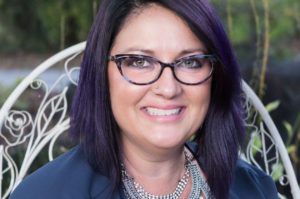
Shelly Devlin says she values “good back and forth interaction and throwing in some humor!” I would say that good back and forth interaction means not hogging the microphone. Answer the host’s questions in some depth but be sensitive that you don’t lecture. And give your host time to share their response!
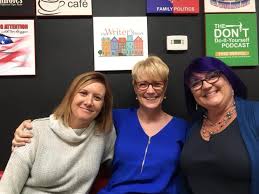
I asked the ladies about how The Writer’s Block Podcast NH started and here’s what Mandra said:
“Writing can be a solitary process…our podcast was born from the idea that other writers could benefit from the information & support we were sharing in our bi-weekly writers group. In addition to critiquing each other’s pages, we were researching the various ways to find an editor, get published, and market books,etc. Plus we inspired each other on the not-so-great-writing days, and to be honest, thought we were pretty darn funny in the process.“We started videoing ourselves in the garage of Shelly’s hair salon and the plan was to post on YouTube.”
“We also decided to be prepared with a given topic, but allow time for impromptu discussion. Jonathan advised us to keep the podcast to about 22 minutes, the average length of someone’s commute. Some weeks the time limit is difficult to stick to, but we try!”
[bctt tweet=”Advice for Starting a Podcast” username=”LisaTener”]
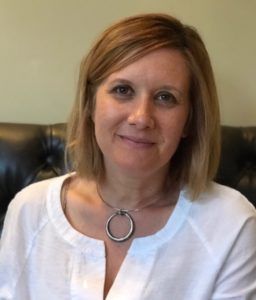
Mandra sums up some of the benefits she’s seen in podcasting, from creating community in an otherwise solitary act (writing) to building her platform in advance of publishing her memoir to honing her speaking skills.
- You choose the topic.
- You can start at the beginning, rather than in the middle.
- A good podcast will be consistent in length so you have some idea of whether you’ll have time to hear the whole thing during one commute.
- Whether you listen in one sitting or two, you can be sure to catch the end, rather than miss it if you’re listening to radio.
[bctt tweet=”How to Find and Meet Podcasters” username=”LisaTener”]
You don’t have to start a podcast of your own. In fact, being on other people’s podcasts can help put you and your book in front of multiple audiences.
Like anything on social media, the best way to start is to become a member of the community. Listen to podcasts that relate to the subject of your book, as well as other subjects that intrigue you.
Share the podcasts you enjoy on social media and interact with the hosts when possible. If you’ve already established yourself as a contributing member of their community, they’re more likely to consider you as a guest when your book comes out.
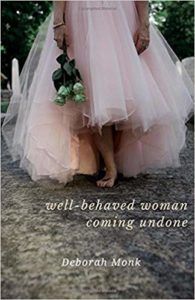 A Shout Out for Well-Behaved Woman Coming Undone
A Shout Out for Well-Behaved Woman Coming Undone
I can’t end this interview without sharing a little about Debby’s novel. Before my interview, Debby sent me a copy of this gem of a book. I’m not sure I’ve ever read a book where the magical realism is laugh out loud funny—a combination that’s inspiring, playful and entertaining. And the book had the perfect balance of laughter and occasional tears. I thoroughly enjoyed Well-Behaved Woman Coming Undone.

I look forward to reading the memoirs all three hosts are working on. Shelly, a salon owner and hair artist is writing As the Chair Turns. After visiting her website, I just have to include a couple of photos of her hair creations. I had no idea that hair art was a thing. How cool is this?!
Which leads me to another benefit of being a podcast guest—you meet interesting, creative people you may otherwise have never met and who open your world to new experiences!



[…] Tener advises writers to get on podcasts to reach readers and sell more books, and Penny Sansevieri advocates updating your keywords to sell more books over the holidays, while […]